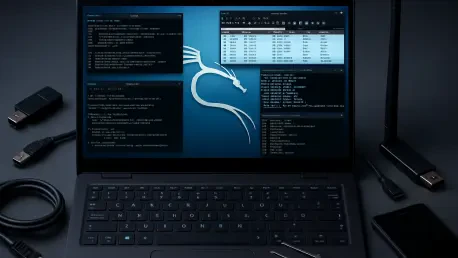In an era where cyber threats evolve at an unprecedented pace, staying ahead of malicious actors demands cutting-edge tools and platforms that empower ethical hackers to test and secure digital environments effectively. The latest release from Offensive Security, the third update of the year for a leading Debian-based distribution designed for penetration testing and cybersecurity, has arrived with a robust set of enhancements. This update, coming just over three months after its predecessor, introduces a host of innovative features aimed at bolstering the capabilities of security professionals. With a sharp focus on refining wireless hacking techniques and expanding the toolkit for diverse testing scenarios, this release promises to address both traditional vulnerabilities and emerging challenges in the digital landscape. As threats become more sophisticated, updates like these ensure that ethical hackers remain equipped to protect systems against potential breaches with precision and adaptability.
Elevating Wireless Hacking Capabilities
A standout feature of this latest release is the reintroduction of Nexmon support, a specialized firmware patch tailored for specific wireless chips. This enhancement enables monitor mode and injection mode on a variety of devices, including the most recent Raspberry Pi models and extending to other compatible hardware. Such advancements significantly broaden the scope for professionals engaged in wireless security testing, allowing them to utilize a wider array of devices for their assessments. This move reflects a deliberate effort to address the growing need for versatile tools in evaluating network vulnerabilities, especially as wireless connectivity becomes increasingly integral to modern infrastructure. By supporting more hardware options, the update ensures that ethical hackers can conduct thorough testing in diverse environments, from small-scale setups to complex enterprise networks. This focus on accessibility and functionality underscores a commitment to keeping pace with the dynamic nature of cybersecurity threats, empowering users to uncover and mitigate risks effectively.
Expanding the Toolkit with Innovative Features
Beyond wireless enhancements, this update enriches the arsenal with ten new hacking tools designed to cater to various penetration testing requirements. Among these are solutions for web security auditing, file type identification, AI integration directly in the terminal, and multiplayer pivoting capabilities. Additional tools facilitate the creation of dummy Wi-Fi networks for testing, Kerberos relaying, and network discovery powered by large language models. Usability also sees a boost with features like a new Xfce panel plugin for quick VPN IP checks and improvements to mobile penetration testing platforms. However, support for older architectures has been discontinued to prioritize more widely used systems. This release demonstrates a clear trend toward integrating advanced, AI-driven solutions alongside traditional hacking utilities, reflecting an adaptive approach to emerging threats. Looking ahead, users can explore these tools to stay ahead of evolving risks, ensuring robust defense mechanisms by regularly updating systems with the latest features for comprehensive security testing.









